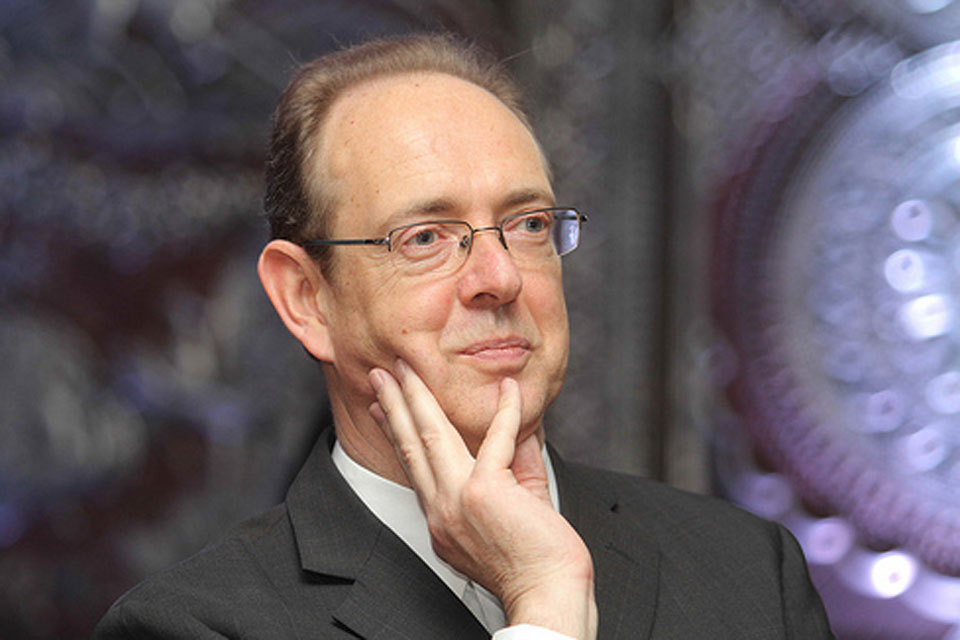Ending sexual violence
Transcript of a speech by Sir James Bevan KCMG, UK High Commissioner at the Lawyers’ Collective Women’s Rights Initiative.

[Honorable Chief Justice Mr P Sathasivam; Honorable Justice Ms Ranjana Desai; Honorable Additional Solicitor General Ms Indira Jaising; other distinguished guests, friends and colleagues;]
I am here today to show my personal support, and that of the British government, for your efforts and those of campaigners everywhere to prevent violence against half the world – to prevent violence against all women everywhere.
Sexual violence is a global pandemic. The official statistics say that one in three women suffer violence or sexual abuse at some time in their lives. I suspect the real figures are much, much higher.
This is personal for me. I am the proud father of three daughters. I have spent most of my adult life living and working in different countries around the world, and in doing so I have learnt one big thing: that the key to successful development – of a country, of the world - can be summed up in just two words: empower women.
And this is important for my government. We work around the world to fight discrimination and violence against women.
In 2012 the British Foreign Minister, William Hague, launched a new global initiative to prevent sexual violence. This aims to enhance the capacity of countries, institutions, and communities to stop it, to support the survivors, and to end impunity for the perpetrators. We in Britain are proud that this has now grown into a major international initiative.
India faces its own challenges in tackling violence and discrimination against women. Every year the World Economic Forum writes a report on the Global Gender Gap, comparing the situation for women in different countries around the world. It looks at participation in the economy, in politics, in education, and at health and survival rates to measure the relative equality between men and women in each country.
The latest Global Gender Gap report, in 2013, looked at 136 countries, ranking each of them in order of female equality. At the top, ranked number 1, was Iceland. India was ranked at number 101. In terms of female health and survival, which measures sex ratios and healthy life expectancy, it was even worse - the report ranked India 135th out of 136 countries.
So no one would seriously contest that Indian women and girls face huge problems today. You know those problems far better than I do. But nor would anyone contest that India has made significant progress over recent years in tackling those problems. And today I want to commend all of those brave individuals who have led the way in making that progress: the politicians and the bureaucrats in the central and state governments, the judges and lawyers in the Indian justice system, parliamentarians, police, activists, NGOs, students and civil society. Many of the people who have played the biggest role in making this progress are in this room today, and I salute each of you. But many more are not. Indeed many of the most important people fighting for women’s rights will never be known or recognised.
They are the ordinary people at local level – sometimes men as well as women - striving to make the world a better place by improving the lot of women and girls. Today I salute all of them.
The American writer Alice Walker once said that the most common way people give up their power is by thinking that they don’t have any. We do have power, all of us, often more than we know. It is important to understand that, and to understand how to use the power you have. Just as important is to understand that you have rights and to know how to ensure that they are honoured.
The two publications which we are launching today will do just that. They will give power to the people – in particular to women and girls who have suffered sexual violence or harassment.
I congratulate the Lawyers Collective Women’s Rights Initiative and its Executive Director Ms Jaising, and everyone else involved in this initiative. I am honoured to be joining you today for this launch, and delighted that the British government and the British Council are supporting you.
My government is also supporting other efforts here in India to fight violence and discrimination against women. In Bihar, for example, the UK’s Department for International Development is helping the state government implement the 2005 Domestic Violence Act by training new Protection Officers, improving Help Lines for women, and making homes and public spaces safer.
We are also supporting a project across India which aims to strengthen the commitment of the private sector to the UN’s Women’s Empowerment Principles. These principles offer guidance to companies on how to empower women in the workplace, marketplace and community. We believe in those principles, and we want to see them universally respected.
I am also proud that the British Council has supported the recent performances in India of the powerful play Nirbhaya, which has won awards and excellent reviews in the UK and here.
Sexual violence against women is not an Indian problem. It is a global problem. We face it in the UK too. So while we hope that our Indian friends can learn from our experiences of how to tackle the problem, we are sure that we in Britain can learn lessons from you here India too. If we are to fight this problem successfully, we need to be strong. And together we are stronger.
Let me close with one of my favourite quotations, which my daughters often cite to me. It is this: “Well-behaved women seldom make history.” Today I salute all the women, well behaved and badly behaved, who have made history. I encourage all of you to keep on behaving badly and to keep on making history.